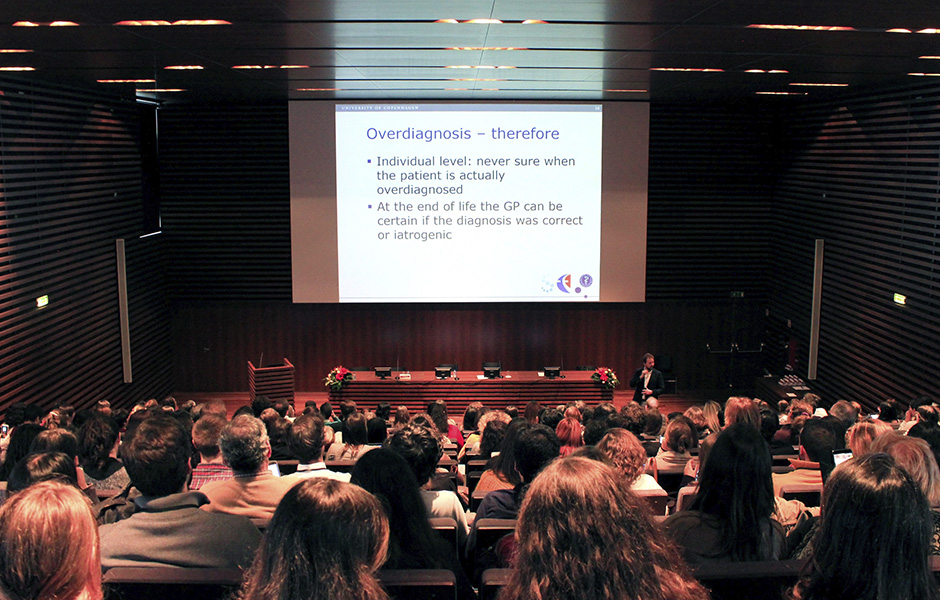Near three hundred family doctors and general and family medicine interns from 21 countries, mainly European, participated in the II European Forum on Prevention and Primary Care that took place on November 5 and 6, un Porto, in partnership with CINTESIS – Center for Health Technology and Services Research.
Carlos Martins, CINTESIS researcher and current president of the EUROPREV – European Network for Prevention and Health Promotion in Family Medicine and General Practice, was the mentor of this initiative, which counted with the presence of Altamiro da Costa Pereira, CINTESIS coordinator and elected director of the Faculty of Medicine of the University of Porto; of Jorge Brandão, on behalf of the Portuguese Association of General and Family Medicine; and of Mehmet Ungan, of the WONCA EUROPE, among other personalities.
“Medical Prevention: the balance of benefits and harms” was the central topic of this second edition. What is at stake is the relation between current scientific evidence and prevention activities in the context General and Family Medicine.
“Often, scientific evidence points in directions opposite to common sense and even to clinical practice. This was a much debated topic in the Forum. We speak, for example, of screening activities, whether oncology, cholesterol testing or blood pressure measurement. Today we know that many preventive activities can bring benefit, but may also imply some harm to patients,” explains Carlos Martins.
One of the big questions is how to communicate this potential harm associated with certain preventive activities. “Traditionally, over the past few decades, what the medical community has conveyed is just the positive side of prevention. In the light of the science and data available to us, we have come to the conclusion that we must also transmit the potential harm. In addition to the cost component of interventions, people run the risk of being unnecessarily diagnosed with diseases that would never cause them problems,” he continues.
According to the principal investigator of the H4A – Health for All group of CINTESIS, “currently, primary health care teams are being evaluated by performance indicators such as screenings that measure only the percentage of people who, in a given age group, have been screened. This type of performance indicator pushes towards the undertaking of health screenings because it is used to evaluated health teams.”
For the expert, it would be desirable for such indicators to be changed, “in order to measure whether impartial and unbiased information has been provided on the potential benefits and risks of screening so that the individual can decide whether or not to get it. You can choose not to and that is a legitimate choice.”
In this regards, Carlos Martins says that EUROPREV could eventually present an official “statement” to “encourage health authorities of different European countries to cease using this type of indicators that push towards health screenings and start using indicators that promote correct information, conveying the truth about screenings, whether positive or negative”.
As such, he believes that teaching techniques for clinical communication with patients, from pre-graduate medical training onwards, will be increasingly important in order to strengthen the doctor-patient relationship based on scientific data. “This communication is fundamental because it is the translation of scientific language into a language perceived by the ordinary citizen.”
The third edition of the European Forum on Prevention and Primary Care is already scheduled for November 4 and 5, 2019, in Porto, and will again discuss prevention in the context of Primary Health Care.

